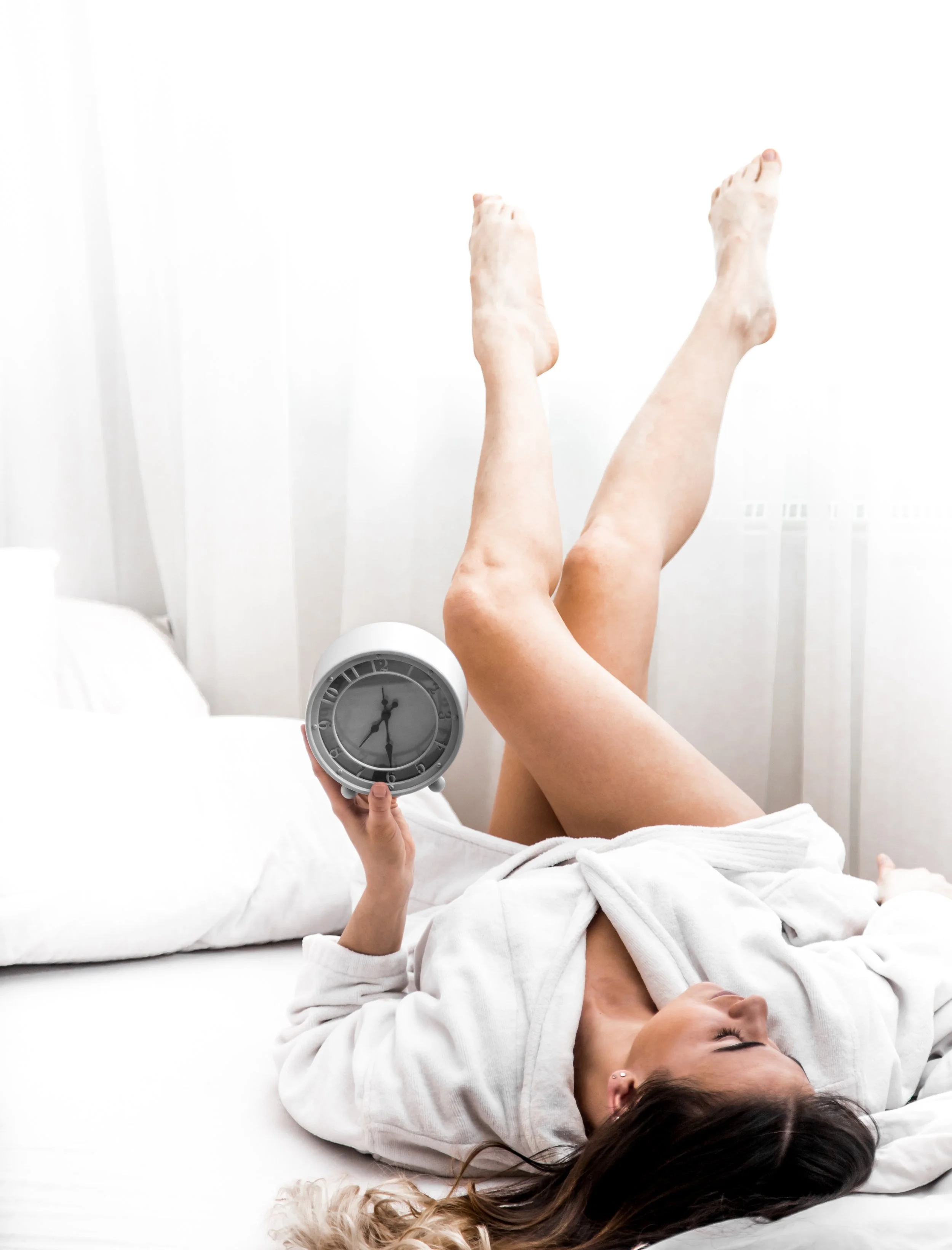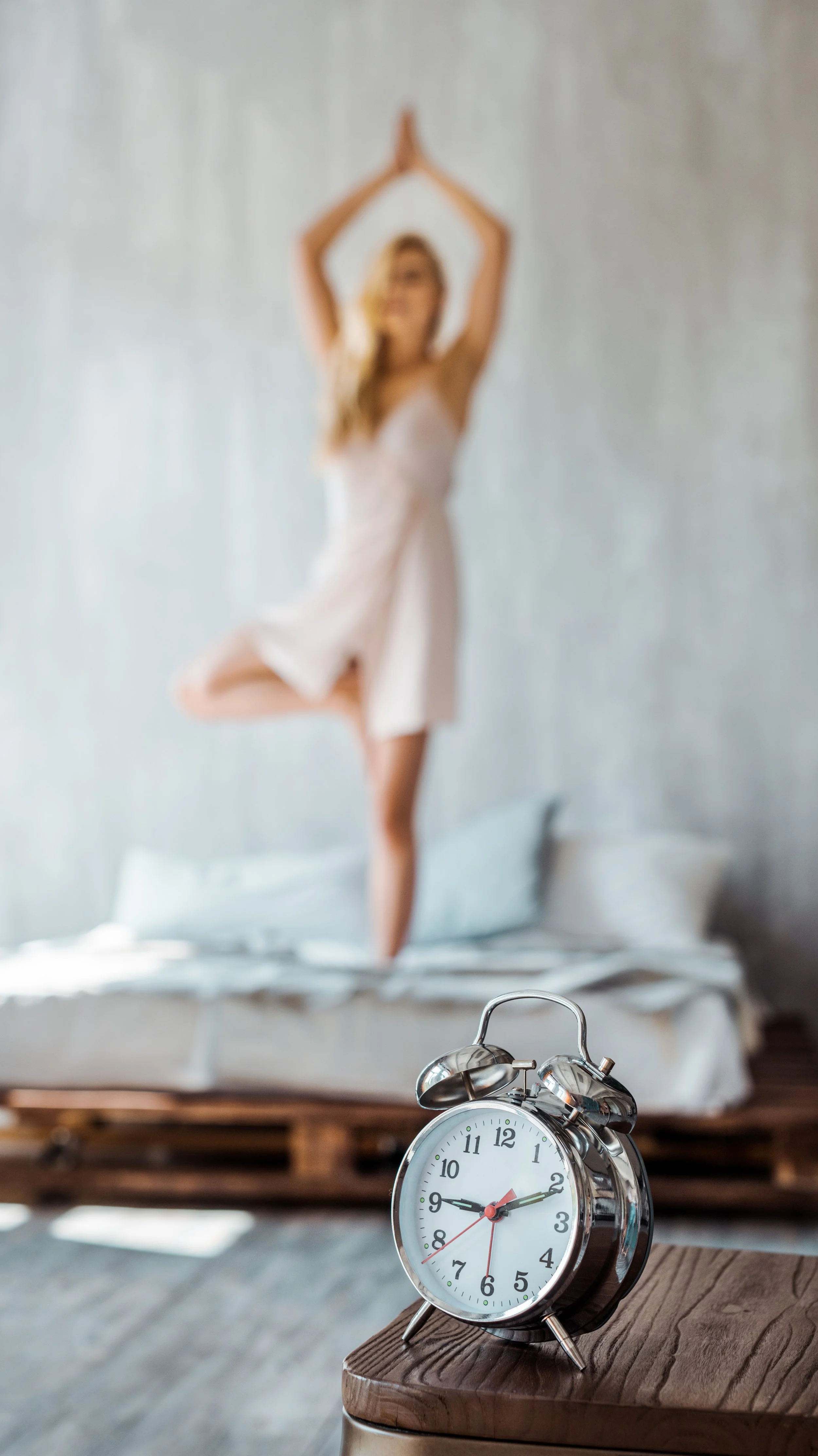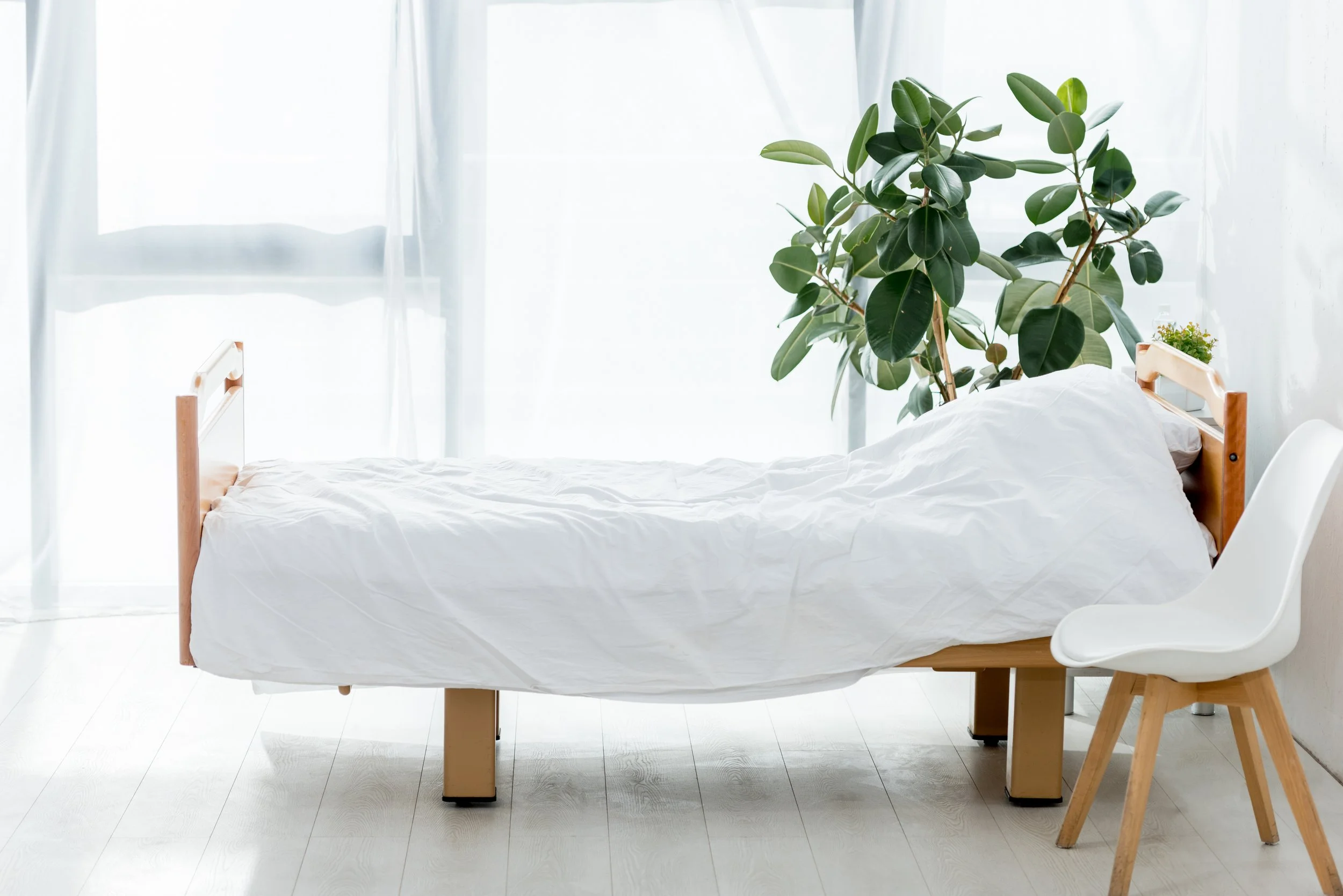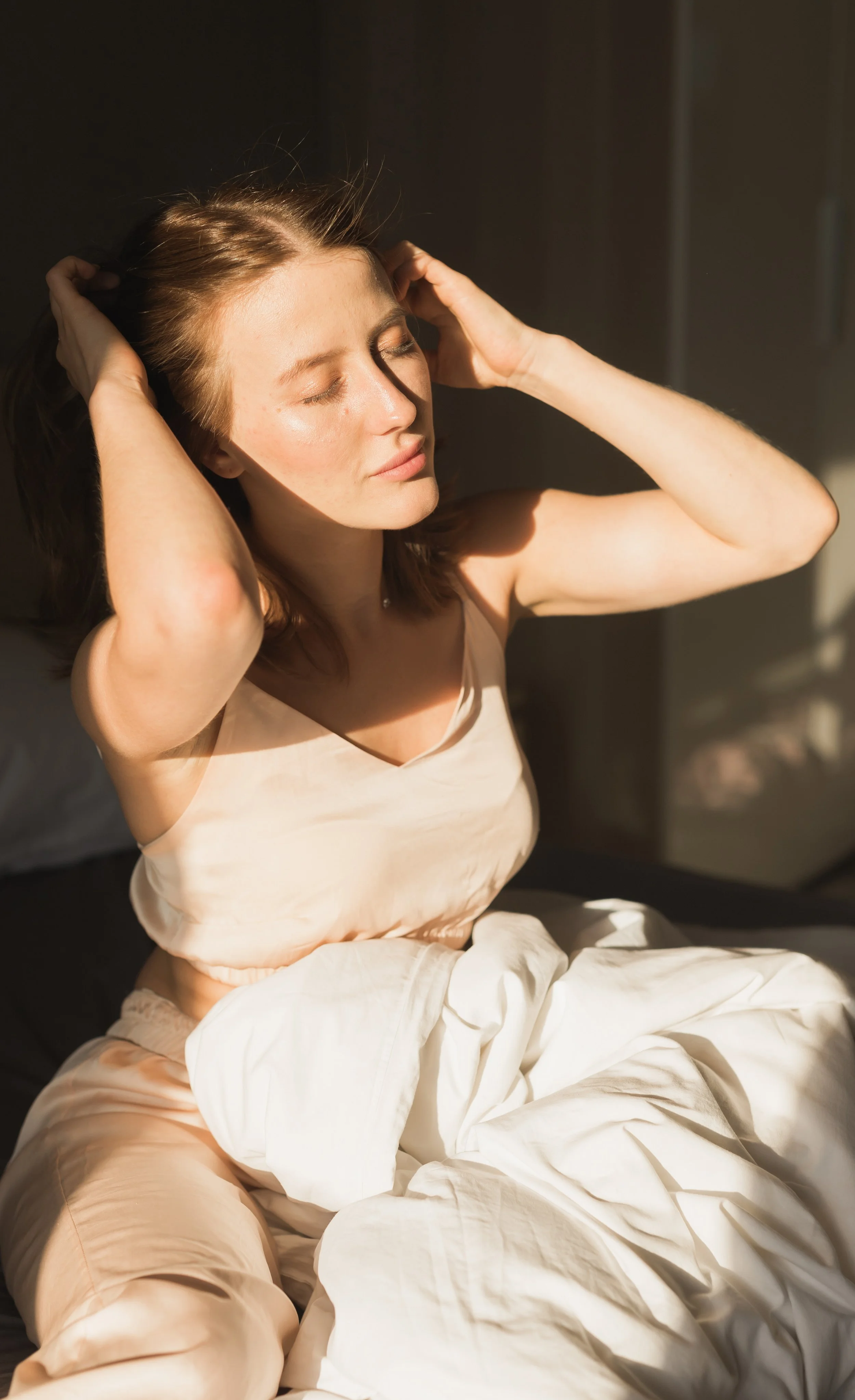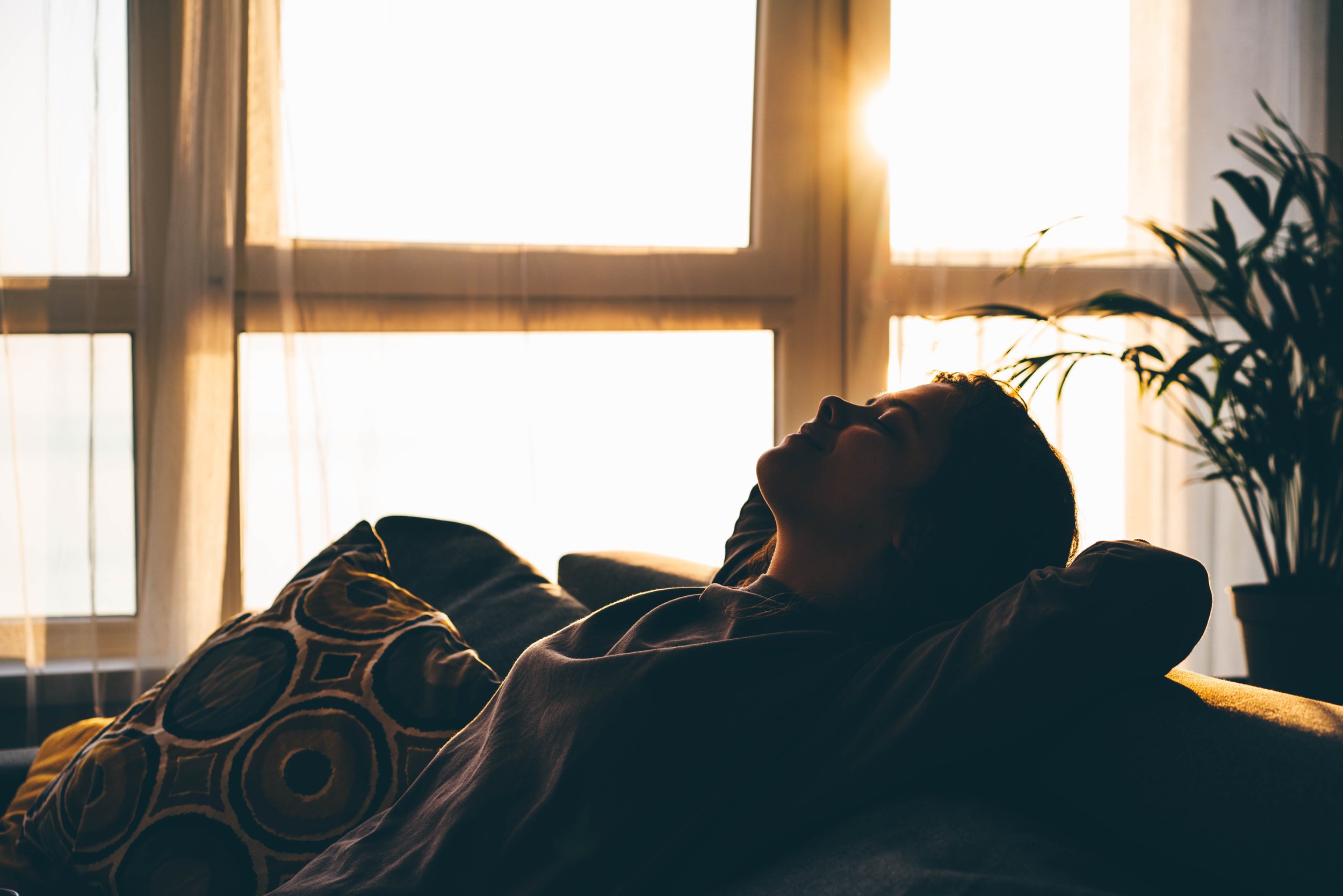
Holistic Practices
CIRCADIAN bIOLOGY
Mastering Your Body's Clock
Our internal clock, dictated by circadian biology, is far more than just a fancy name for a sleep-wake cycle. It's a complex symphony of hormones, brain activity, and cellular processes that regulates everything from metabolism and digestion to mood and cognitive function. When aligned with the natural light-dark cycle, circadian rhythms promote optimal health.
We experience deeper sleep, increased energy levels, sharper focus, and a stronger immune system. However, the modern lifestyle, with its artificial lights and erratic schedules, throws this delicate rhythm significantly off-balance. The constant blue light exposure from electronic devices disrupts melatonin production, a hormone crucial for sleep.
Late-night work sessions and irregular sleep patterns further disrupt our internal clock. This misalignment with our natural rhythms has been linked to a rise in chronic health problems like obesity, diabetes, and even certain cancers. Understanding circadian biology and its importance is the first step towards optimizing our health in the modern world.
By incorporating strategies like maintaining a consistent sleep schedule, minimizing screen time before bed, and maximizing natural light exposure, we can help our internal clocks stay in sync and reap the numerous health benefits it offers.
Sleep
Quality sleep isn't a luxury, it's a necessity
Quality sleep isn't a luxury, it's a necessity. Just like diet and exercise, sleep fuels your mind and body. During sleep, your brain consolidates memories, repairs tissues, and regulates hormones. Skimp on sleep, and you're literally inviting grogginess, brain fog, and even a weakened immune system. Aim for a consistent sleep schedule and guard it at all costs, most importantly on weekends!
Actionable Tips and Tricks
Power down before bed
Avoid screens (phones, laptops, TVs) as soon as the sun sets. The blue light they emit disrupts your sleep cycle. If you do choose to use your devices, look into getting Blue Light Blocking Glasses - Check Out : https://us.boncharge.com/collections/blue-light-blocking-glasses
Craft a relaxing bedtime routine
Take a warm bath, read a book, journal, or practice relaxation techniques like deep breathing or meditation to wind down before bed.
Make your bedroom a sleep sanctuary
Our minds create associations with environments and corresponding actions. Make it as easy as possible to sleep: no devices, no lights at night, turn down the A/C.
Invest in a light alarm
Having to wake up to a blaring alarm early in the morning can be absolutely infuriating. Light alarms wake you up peaceful whilst attuning your eyes/body to proper light cycles of the day.
See the light
Get regular exposure to natural light during the day, especially in the morning. Going for a morning walk is a great way to check all the boxes and get a win early in the day. This helps regulate your body's internal clock. Once the sun goes down, start winding down for bed;
Invest in Whoop/Fitness Tracking Device
Most people think that they know how much sleep they’re getting when, in fact, they’re getting no where near as much sleep. Having undeniable data about your personalized sleep patterns dismisses a lot of the noise around what we think versus what is actually happening.
-For more content about sleep click HERE for some great videos-
Light
Harness the Power of Light for a Balanced Circadian Rhythm
Light quality plays a starring role in our internal clock, the circadian rhythm. Exposure to bright light, particularly light rich in blue wavelengths in the morning, suppresses melatonin production and signals wakefulness. Conversely, darkness promotes melatonin production, nudging us towards sleep. This light-dark cycle keeps our circadian rhythm in sync with the Earth's rotation, optimizing sleep patterns, hormone regulation, and overall health. Artificial light disrupts this cycle if not managed carefully, highlighting the importance of maximizing natural light exposure during the day and minimizing blue light in the evening for a healthy sleep-wake cycle.
Actionable Tips and Tricks
Morning Light Bath
Soak up sunshine! Aim for 15-30 minutes of bright natural light within an hour of waking up. Open the curtains, take a walk, or have breakfast outside.
Dim the Evening
As dusk approaches, swap harsh overhead lights for warm, dim lamps. Consider using lighting with amber or reddish hues that are less disruptive to melatonin production.
Ditch the Screens Before Bed
Power down electronic devices like phones, laptops, and TVs at least an hour before bedtime. Their blue light emission can significantly suppress melatonin and delay sleep. Reiterating from above to emphasize importance.
Embrace Darkness
Create a sleep haven! Invest in blackout curtains or an eye mask to block out stray light. This darkness promotes natural melatonin production and signals to your body it's time to wind down.
Hack your lunch break
If possible, get outside for a short walk during your midday break. Even a brief burst of sunlight can reinforce your circadian rhythm.
Beware of hidden blue light
Be aware that fluorescent lights commonly found in offices and public spaces can also emit blue light. Consider using blue light filter glasses during the day, especially if you work under artificial lights for extended periods.
Get outside as much as possible!
-For more content about sleep click HERE for some great videos-

